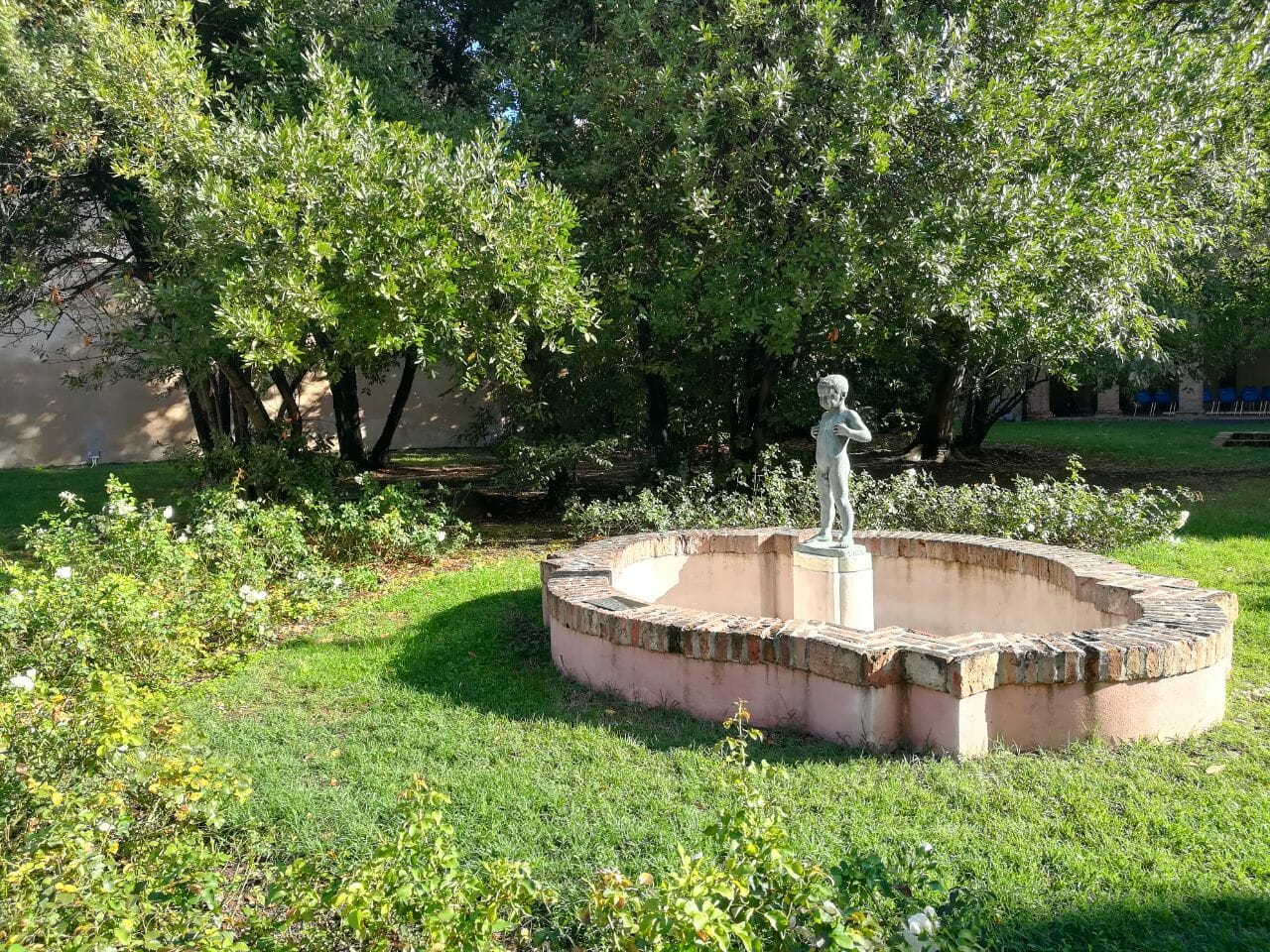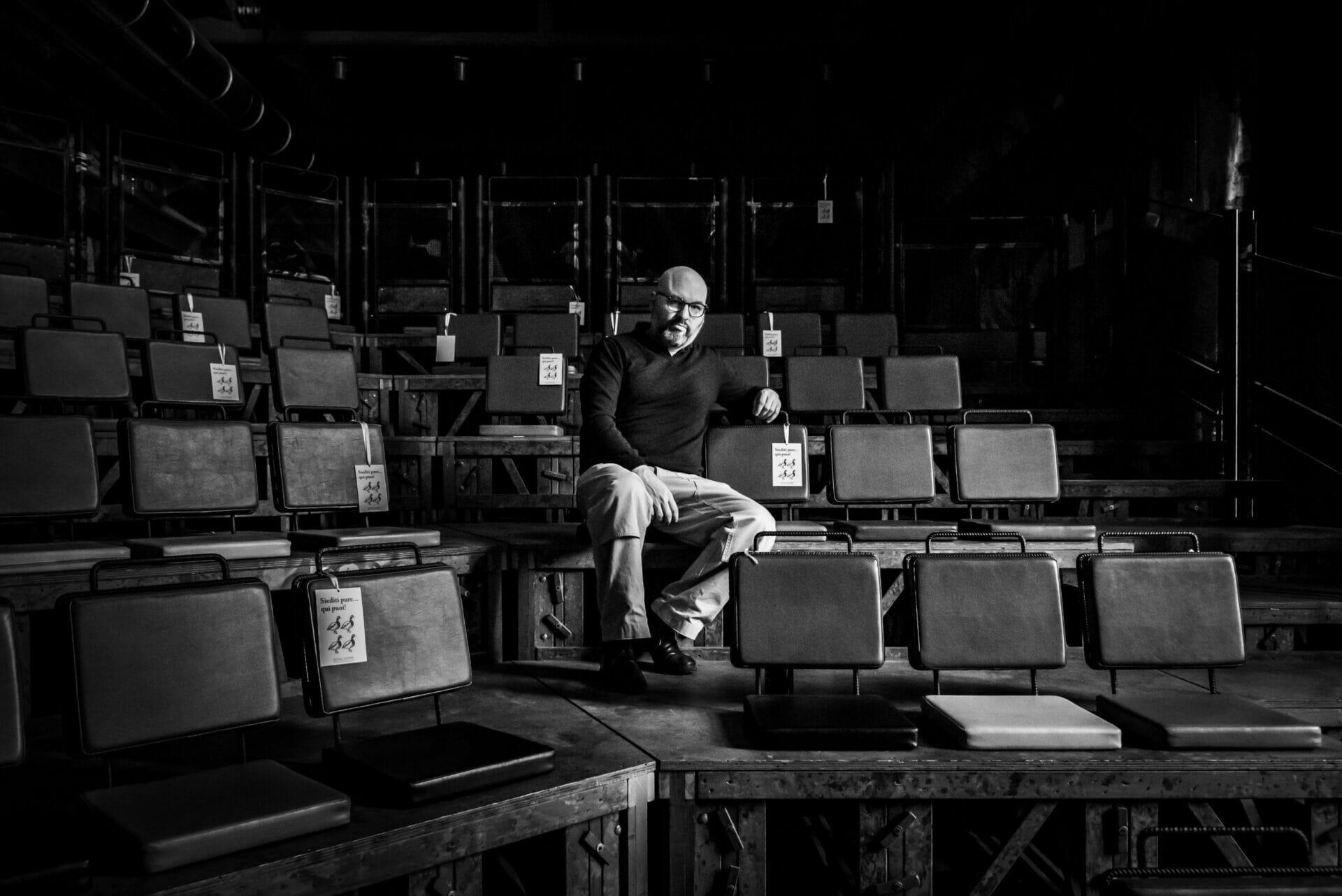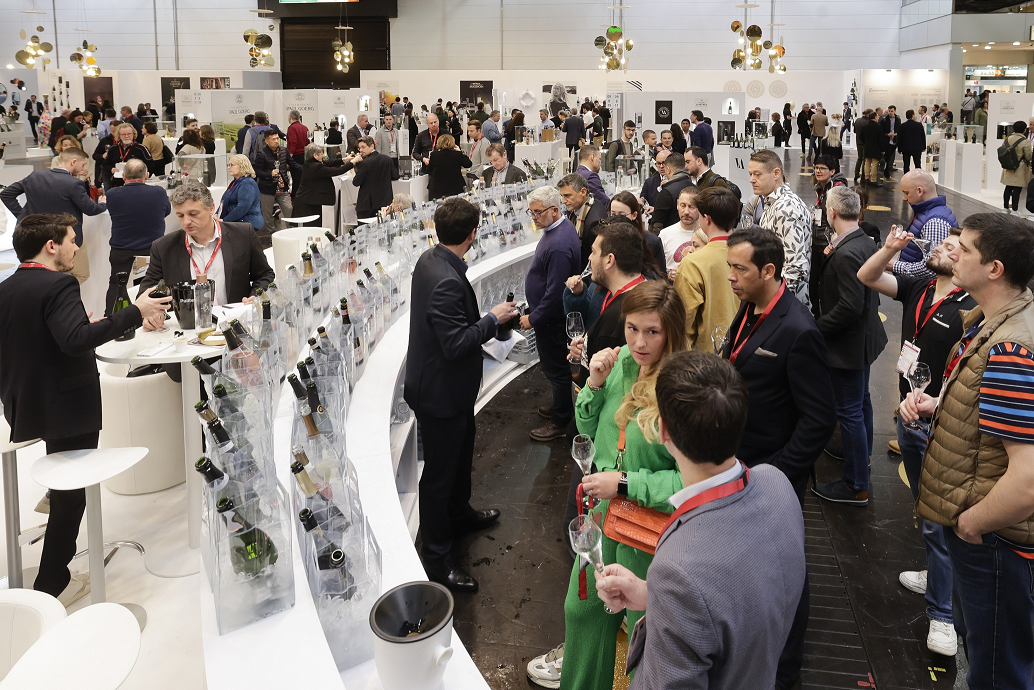
In the middle of the Lower Rhine valley, where the mighty river flows strong and wild before bending westward and splitting up into several branches to find its way towards the North Sea, rises Düsseldorf, the capital city of North Rhine-Westphalia and one of the most important cities in Germany. Situated in the Western part of the country, along the fertile banks of the Rhine and not far from the rich mining deposits of the Ruhr, the city can boast ancient medieval origins. Known to be the birthplace of the famous poet Heinrich Heine, Düsseldorf became great during the 19th-century industrial revolution. Nowadays, other than being a very important business and financial center, the city is a prominent fair hub and is home to several international events throughout the year, but is also known to be the center of the wine world.
Every year, come spring, Düsseldorf opens its doors for ProWein, one of the biggest and most important wine fairs in the world. The event first took place in 1994 at Messe Düsseldorf, the city’s huge trade fairground. The fair was envisioned to bring together in one big annual event all sorts of professional operators working in the wine and spirits industry and coming from every corner of the planet. ProWein has steadily grown ever since and today functions not only as a marketplace but also as a meeting point where different wine cultures and trends can be shared amongst the various participants.
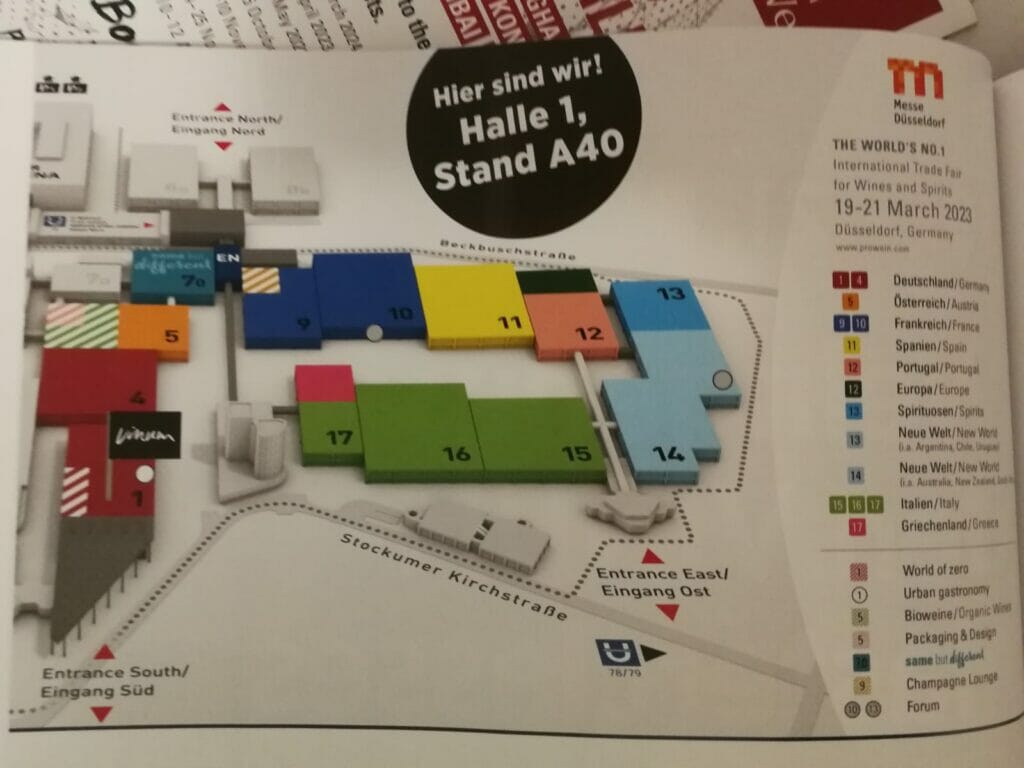
An international meeting point
Despite generating through its success a series of satellite events in Asia and Brazil, ProWein Düsseldorf still remains the center of it all. The 2023 edition took place from 19 to 21 March, attracting about 6000 exhibitors coming from over 60 countries and distributed in 13 pavilions. Each pavilion was organized in various exhibition areas dedicated to a particular country, region, type of wine, or overall theme. The most represented country was Italy, which occupied pavilions 15, 16, and 17 (the last one shared with Greece), followed by France, Germany, and Spain. Exhibitors from the so-called “new world” also attracted rising interest. Besides the producers’ exhibitions, there were also themed areas that hosted glass and accessories makers, bottle decorators, packaging experts, and wine journalists with their magazines. On the other hand, there were around 49,000 trade visitors coming from 141 countries.
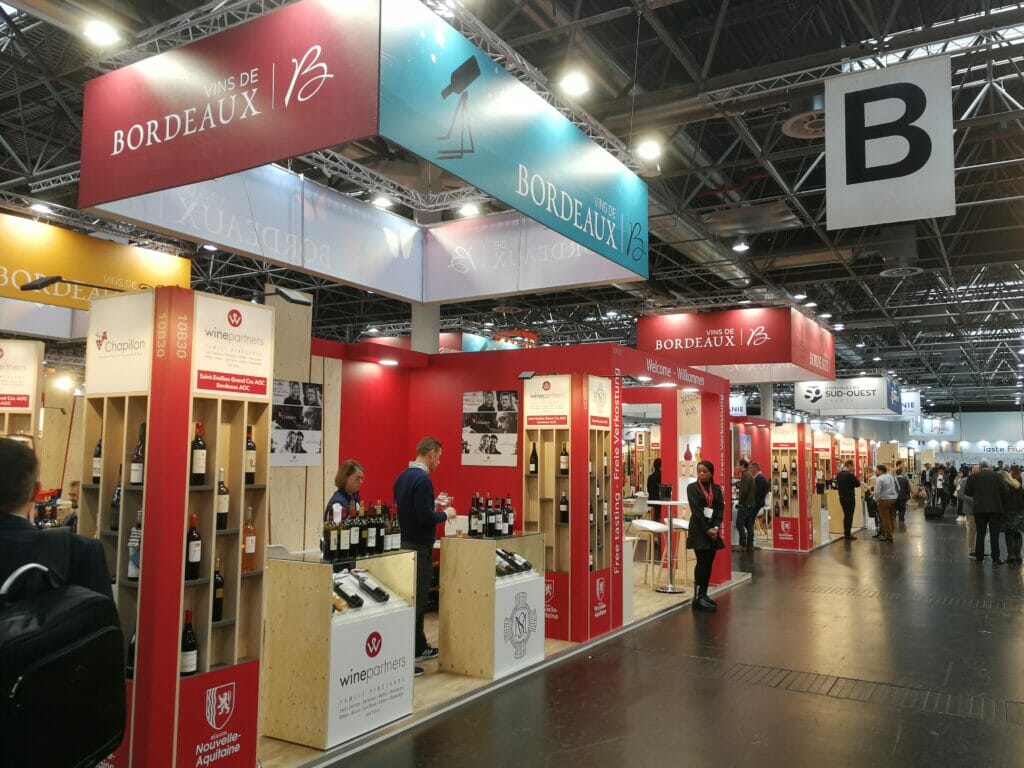
Being at the center of the wine world, the visitors could meet the exhibitors directly at the stands or take a stroll around the many tasting areas. These were organized by geographical area or theme and offered the possibility to taste and compare various wines. Summary sheets highlighting the main characteristics of each wine were available on-site to guide the experience. Alongside these areas, there were also spaces dedicated to knowledge and cultural sharing. Here, various seminars about different wine-related topics were held. An example of these were the classes on vulcanic wines or food pairing organized by the Italian Ministry of Foreign Affairs and International Cooperation and by the Italian Trade Agency.
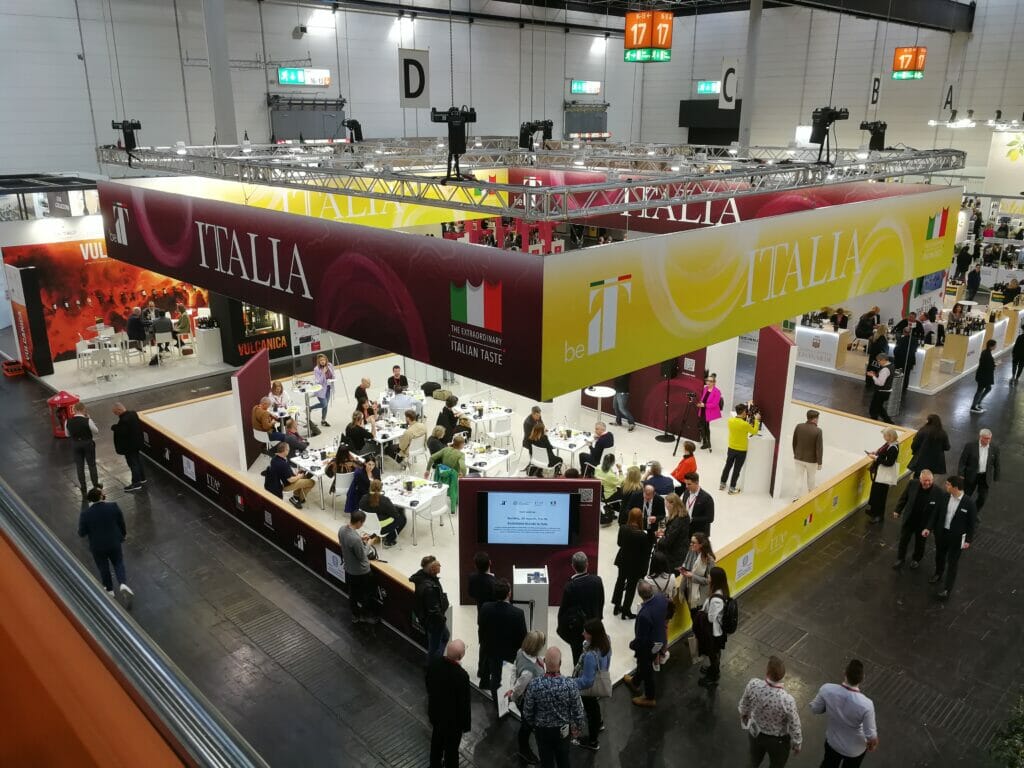
New trends, new futures: alcohol-free wines
Aside from the more traditional exhibitions dedicated to famous wine areas such as Chianti or Bordeaux, the center of the wine world presented spaces devoted to new trends in the wine world. These exhibitions revolved around themes such as alcohol-free wines and biodynamic or organic wines. The rising demand in the beverage market for drinks devoid of alcohol attracted much interest to the alcohol-free wines area.
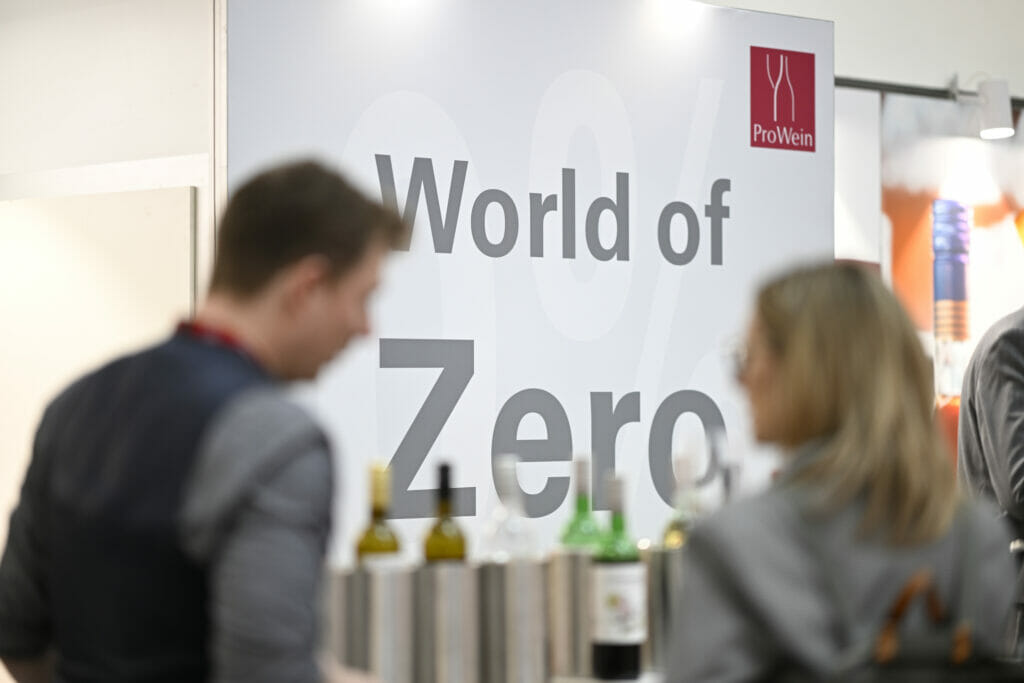
Although there are many grape juices marketed as such, these wines normally undergo a thorough winemaking process before alcohol is extracted from them in the end. The presence at the fair of the Australian popstar Kylie Minogue, to launch her alcohol-free sparkling rosé wine, also gave great media resonance to the whole exhibition area.
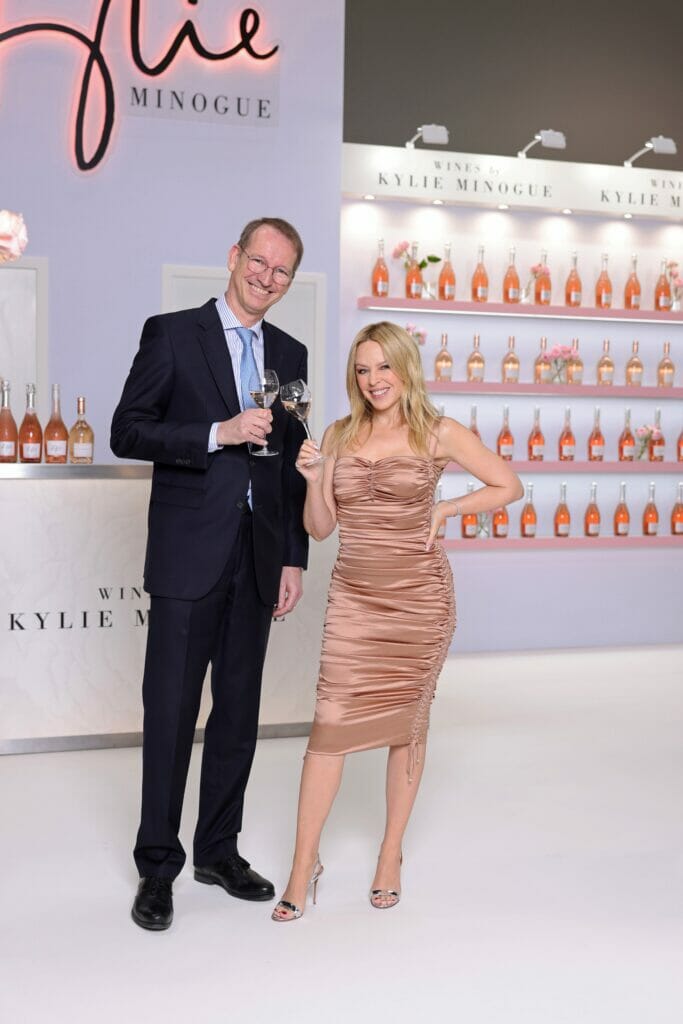
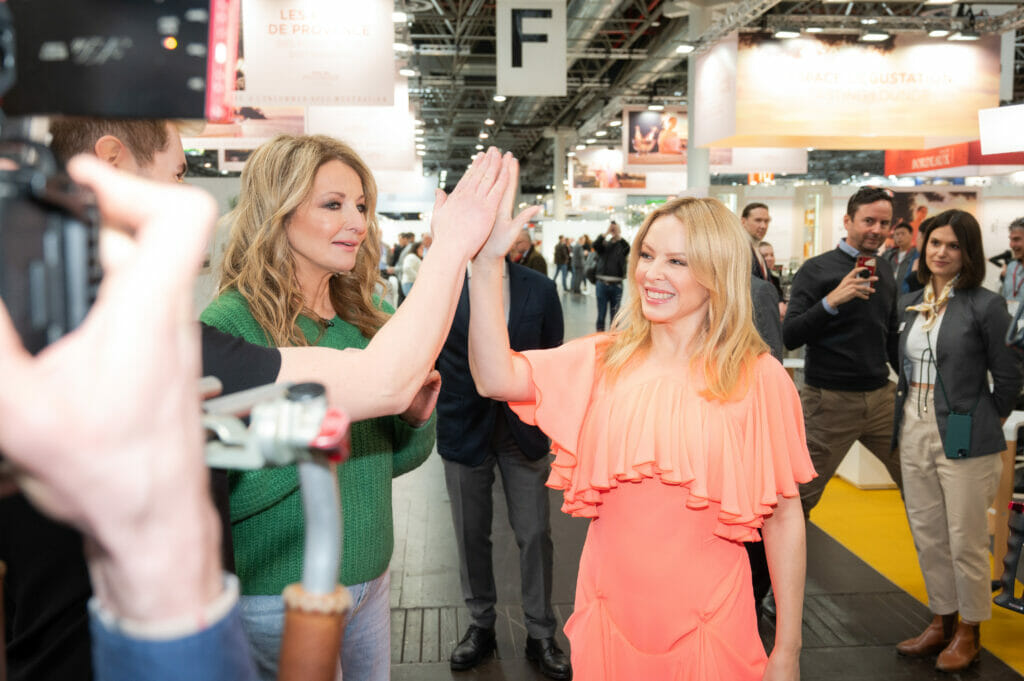
Organic and biodynamic wines
Organic and biodynamic winemakers shared the same spaces alongside international organizations aiming to promote sustainable practices in viticulture. Organic wines are wines that have a low level of chemical additions and try to make use of as many environmentally conscious agricultural practices as well. These wines were often exhibited in alternative packagings such as aluminum cans, tetra packs, and bag-in-box. Cans were not only presented as fancy and colorful lifestyle items but also as solid and easier-to-recycle alternatives compared to glass. The bag-in-box format instead certainly attracted the eye for being more conspicuous and cumbersome than the regular wine bottle. It consists of a cardboard box containing a plastic bag to which a small tap is attached. Although not as insulating as glass, this format is optimized for day-to-day consumption while also being easy to recycle.
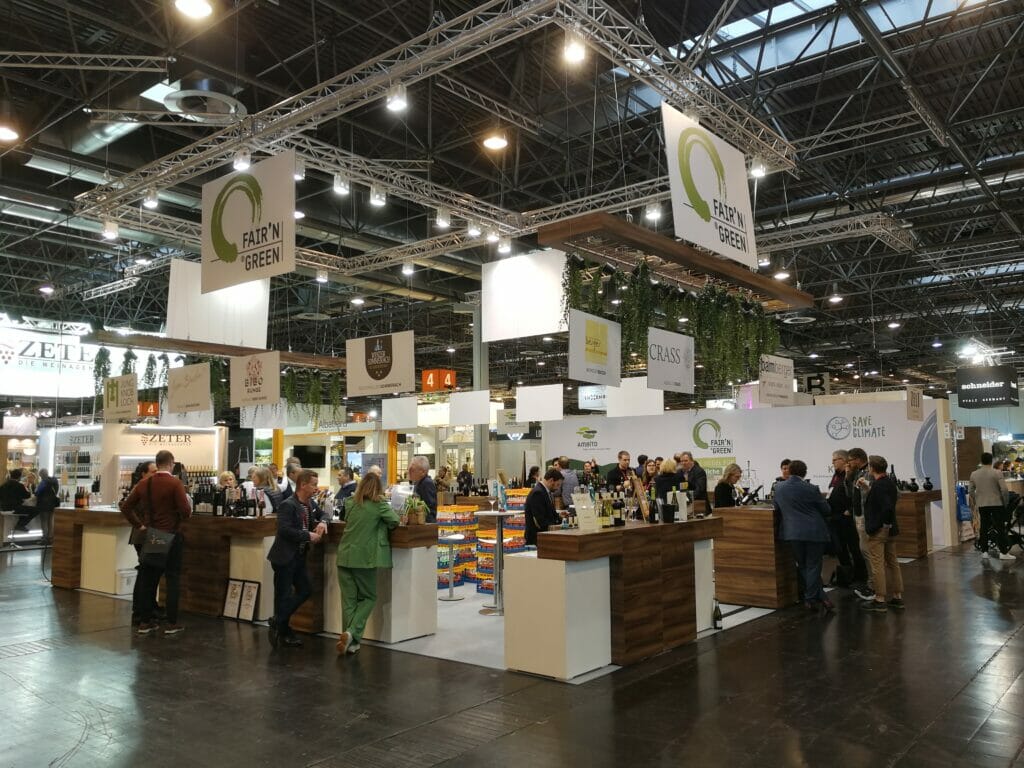
Biodynamic wines share some basic principles with organic ones but are mostly obtained through agricultural practices based on the theories of the philosopher Rudolf Steiner. Such practices aim at bringing the winemaking process in cosmic balance with the whole terrestrial ecosystem. Biodynamics only partly relies on scientific principles and is therefore defined as a pseudoscience. Despite this, biodynamic wines are together with organic wines among the most environmentally-conscious alternatives for responsible wine consumption.
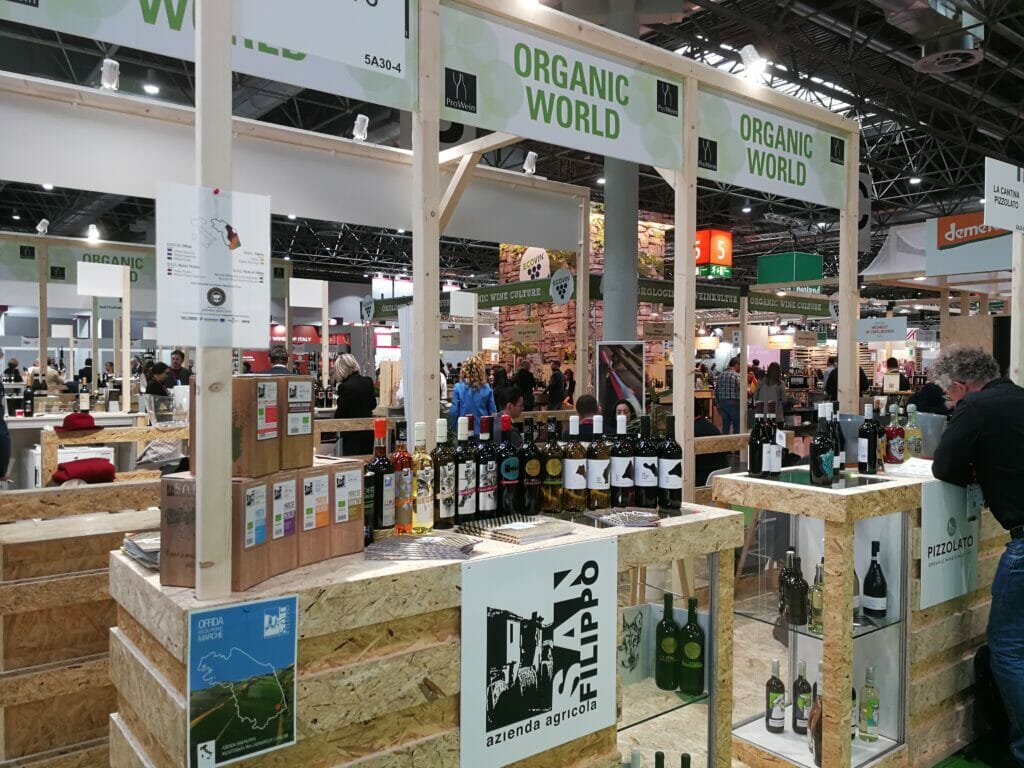
Wine is dead, long live wine!
“Le roi est mort, vive le roi!” was the proclamation used in France in the late middle ages to mark the coronation of a new monarch. It denotes the end of a reign and the beginning of another one, rooted in tradition and totally new in essence at the same time. Inspired by this saying, “alcohol is dead, long live alcohol” was one of the key slogans displayed in pavilion number 1, dedicated to alcohol-free wines. In the same way, “wine is dead, long live wine!” is a phrase that could enclose the essence of this ProWein edition. Although much space was dedicated to well-known wines from traditional wine areas and countries, new products and trends were also in the spotlight. Sustainable viticulture, alternative packagings, and organic or biodynamic wines were only some of the latest innovations on display that are both innovating and redefining the very concept of wine.
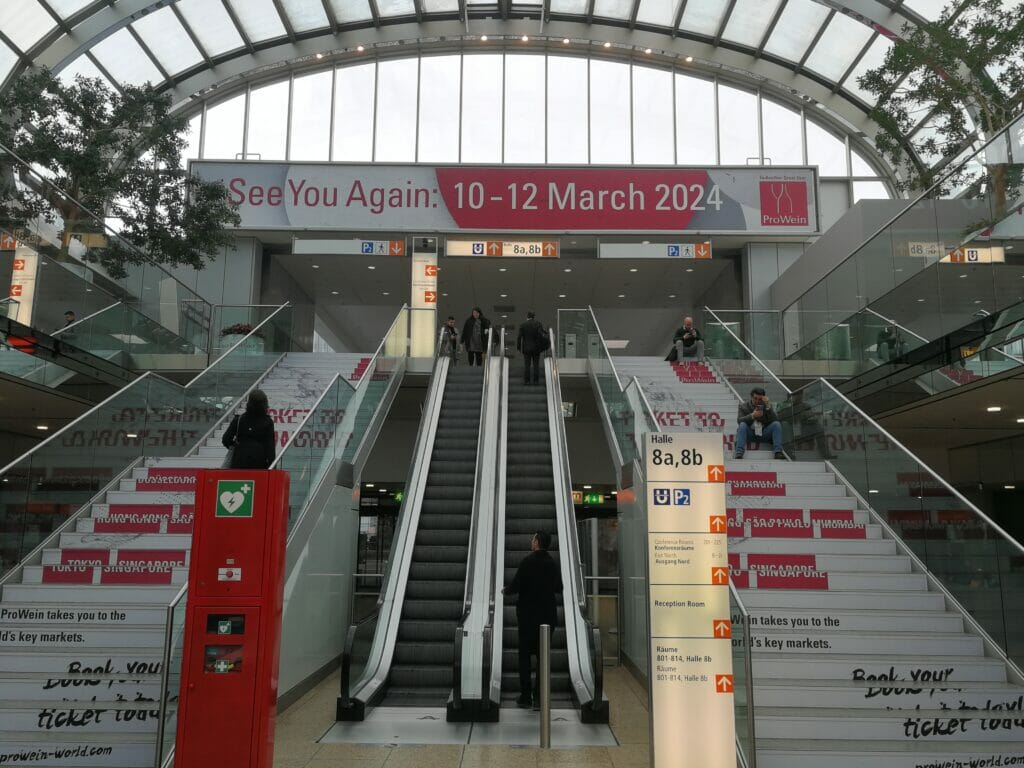
Once again, ProWein stayed true to its claim and enabled its participants to visit the center of the wine world. A world both ancient and new, familiar yet unknown, that is changing fast and must strive to adapt to the challenges of the 21st century. The fair will be back in Düsseldorf from 10 to 12 March 2024.






